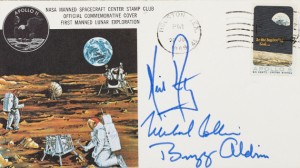Finnish designer Jirka Vinse Jonatan Väätäinen (pronounced “Yirka” and “Vah-tay-nen”) has pieced together some “real life” portraits of Disney princesses in Photoshop. Here’s Princess Aurora:
Month: October 2011
This Sucker’s Electrical
That’s right. DeLorean Motor Company announced an all-new, all-electric DeLorean. It debuted last week, and the want it in production by 2013.
I did the math so you don’t have to. Given typical electrical efficiences of present-day electric cars, 1.21 gigawatt (hours) would power a car for about 7.5 million miles.
Lightning-powered cars. Tell your friends.
(Bonus question: how large would the flux capacitor have to be to power a car at 12 volts for a 30 mile round trip?)
Google’s Own Ads
The first time I saw the end of this TV advertisement from Google, I had to rewind TiVo in order to watch the whole thing again. (I think that was the first time I ever used TiVo to not skip commercials.) The same ad was on again last night, and it’s still just as touching.
There’s a similar ad recognizing Dan Savage’s It Gets Better project, and I find both very reminiscent of the ad Google ran during last year’s Superbowl: Parisian Love.
Remember when Apple’s “Hello, I’m a Mac” ads were the ones people actually wanted to watch? Now Google’s even taking that away.
Payment for Services Rendered
When an oxygen tank on Apollo 13 exploded, astronauts had to depend mainly on the Lunar Module systems, designed only for landing on the moon, to carry them safely through space.
According to Futility Closet, when the crew had returned safely to Earth, Lunar Module manufacturer Grumman sent a bill for services rendered to Command Module manufacturer North American Rockwell.
Inspection: $ 20.00 Towing Charge @ $1.00/mile 300,000.00 Loss of altitude vehicle 24,100.00 $20/day plus .08¢ per mile Battery charge 5.00 Air conditioning @ $5.00/day 25.00 Room and board @ $40.00 each 600.00 per day
I haven’t been able to find any confirmation this actually happened, but it’s the sort of story that’s so fun I’m choosing to believe it’s true anyway.
Google Ads Preferences
Google makes its money by showing you ads, and the idea is that they’ll know what ads you’ll like based on your interests. Depending on what services you use (search, GMail, Voice, et cetera), Google may know a little or a lot about your Internet life.
To see what categories Google thinks you like best, view the Ads Preferences page.
A couple of mine are accurate. As a web developer, I do find Internet & Telecom – Web Services – Web Design & Development relevant. On the other hand, I’m also tagged with Home & Garden – Home Furnishings – Lighting and Hobbies & Leisure – Crafts. Can’t you picture me sitting at my craft table decorating a new lampshade with seashells? No? Well, neither can I. But Google can.
A footnote promises that “sensitive interest categories” don’t count. So if your primary interest is Pornography – And Lots of It, you won’t find that in your profile anywhere. Handy!
Apollo Insurance Covers
Suppose it’s 1969 and you’re getting ready for a visit to the moon as an Apollo astronaut. You may not make it back alive — that’s no secret to anybody — but you still want to provide for your family. Anybody else would just take out a life insurance policy, but astronauts didn’t have that option. No agent in the world would accept such a risky policy.
NASA solved the problem simply and cleverly. Astronauts would sign a set of postcards just before each launch. Such memorabilia would be inherently valuable just for representing a bit of history. If the astronauts didn’t survive, though, those limited, suddenly irreplaceable cards would be worth a fortune. Astronauts’ families could make their “insurance” income by simply selling their stock of cards.
A lot of the details are a bit of a mystery (e.g., precisely how many of each card exist), but they’re still traded today. Various auction sites, including eBay, currently offer cards for around $10,000.
(via UKinsurancenet)


